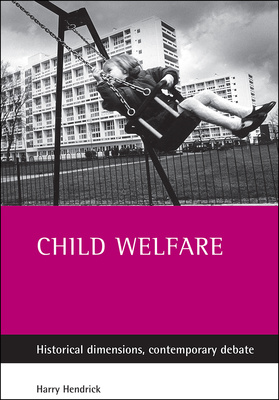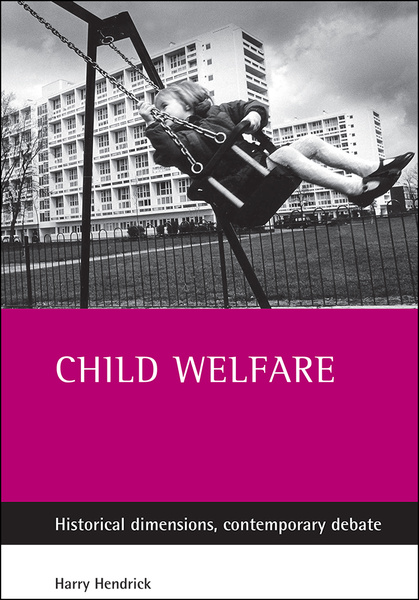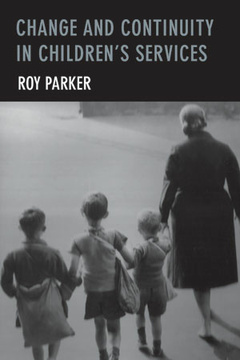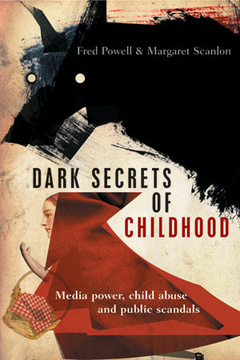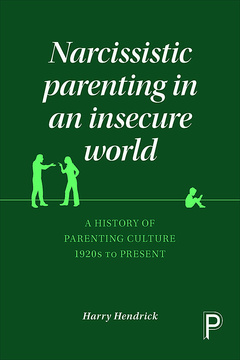Published
Feb 19, 2003Page count
304 pagesISBN
978-1861344779Dimensions
234 x 156 mmImprint
Policy PressChildren and child welfare sit at the heart of New Labour's plans for social inclusion - but how does the government view 'children' - is it reflecting public opinion, or leading it? How does New Labour perceive 'child welfare'? What are the motivations behind, and objectives of, current social policy for children? Are the 'Rights of the Child' being subsumed under 'duties and responsibilities'? This revisionist account provides critical answers to these questions within a historical framework and from a child-centred perspective.
The book not only offers a provocative account of contemporary policies and the ideological thrust behind them, but also provides an informed historical perspective on the evolution of child welfare during the last century.
"The book amply demonstrates why Hendrick's child care history is so popular among academics and also how much 21st century social workers can learn from the past." www.communitycare.co.uk
"... an invaluable addition to the contemporary child welfare literature." Social Development Issues
MISSING TEXT... materials, which will be of great interest to scholars in a range of disciplines and which seems certain to become a staple on student reading-lists for years to come." THES
"... this text is indispensable for all those with an interest in the history of child welfare - it is already the key text for my 'Understanding Child Welfare' undergraduate module, and would serve just as well at postgraduate level." Nick Frost, Institute of Lifelong Learning, University of Leeds
"New social work courses are being initiated. Hendrick's book should be high on their reading list." Journal of Social Policy
"... a fascinating account of what adults in England have thought about and done to children in pursuit of their own social, economic and political ends." Community Alternatives
"... recommended without reservation not only to undergraduate and graduate students of social work but also to their professors, who will appreciate its scope and depth, take delight in its insights, and may, in some cases, enjoy summoning the artillery to refute its arguments." Community Alternatives
"... an engrossing book in which one is constantly forced to reflect on connections between historical developments and current shifts in children's services." SPA News
"... an invaluable resource for both teachers and students on a range of health and welfare courses." Social History of Medicine
"Child Welfare is an accessible, informative and thought-provoking text, and should be read by all with an interest in contemporary policy, its historical context, and the challenges presented by such a writer." British Journal of Social Work
"... stimulating and challenging... this volume should be read by everybody who is, or intends to be, professionally involved with children." Children & Society
"Hendrick has provided us with a book to be appreciated and savoured, one offering students and the general reader a shrewd and intelligent overview of child welfare policy. Here is a standard text, one unlikely to be bettered for a long time." Youth & Policy
"... a useful and informative text for policy makers, academics, social workers and those concerned with children's rights." ChildRight
"It provides the best historical account of childhood within a shifting service and social policy context." Jameel Hadi, Univeristy of Suffolk.
Harry Hendrick is a social historian teaching in the Institute of History at the University of Southern Denmark, Odense. He is the editor of Child welfare and social policy: An essential reader (The Policy Press, 2005).
Contents: Child welfare: ways of seeing; The narrative of bodies/minds: bodies; The narrative of bodies/minds: minds (and bodies); The narrative of victims/threats; The relationship between bodies/minds and victims/threats; Normal/abnormal; Children as the future; Providing for the 'children of the nation', 1880s-1918; The background; The Child Study Movement; Child cruelty and the NSPCC; The age of consent and punishment of incest; Children in care: the Poor Law, voluntary societies and child emigration; The blind, the deaf and the 'feeble-minded', The Infant Welfare Movement; The School Meals Service; School medical inspection and treatment; The 1908 Children Act; Child welfare in a period of economic and political crises, 1918-45; Nutrition; Medical treatment; The Child Guidance Movement; Changing perspectives on juvenile delinquency: the 1933 Children and Young Persons Act; The war years: evacuation, school meals, and health and welfare under the 1944 Education Act; Optimism and liberalism: children of the welfare state 1945-79; The Curtis Report, 1946; The 1948 Children Act; The 1948 Children Act, the family and the state; Deprivation and depravation: Ingleby and the family; The 1963 and 1969 Children and Young Person Acts; The 'family service' in the community, 1970-75; Fostering, adoption and the 1975 Children Act; The rediscovery of child abuse; The Conservative Age: liberal moments amid poverty, ill-health and punishment 1979-97; Health: increasing inequalities; Poverty: the worst in Europe?; Delinquency and justice: 'childhood in crisis'; Childcare policy, the 1989 Children Act and after; New Labour and child welfare: panopticism in the service of communitarianism; Introduction: the Third Way; Poverty: eradicating it; Education: 'education, education, education'; Delinquency: 'no more excuses'; New Labour and the post-modern child.







